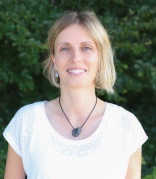Home › magazine › european reports › A.I.S.E. appoints Alexis Van Maercke as director general
A.I.S.E. appoints Alexis Van Maercke as director general
31st of May 2024A.I.S.E. has been the voice of the European detergents and maintenance products industry since 1952. Alexis Van Maercke became director general in January 2024. The association’s senior communications manager Aisling O’Kane spoke to him about his plans for the organisation in the coming years and writes this exclusive piece for ECJ.
A.I.S.E. represents the detergent sector in Europe: can you briefly tell us how the association is structured?
The diversity of our membership is one of our greatest strengths. We represent the whole sector from large multinationals to SMEs as well as associate members active in our supply chain. This variety of voices allows us to take an integrated and balanced approach to every issue.
Based in Brussels, A.I.S.E., our member companies and our network of 29 national associations, represent over 900 local companies in national capitals and to the European Institutions.
Can you give us an outline of the current economic situation of the sector?
Our annual reporting of the European market shows annual growth across most businesses, with an annual market value of over €42 billion. The exceptional demand for cleaning and disinfecting products during the pandemic, particularly in the professional sector, disrupted many markets which are now returning to normal. However, despite stabilised turnover, production remains disrupted: costs are still very high due to high raw material prices, wage cost and inflation.
What are the hot topics you are working on at European level?
The Detergents Regulation governs our core business and, A.I.S.E. is the lead stakeholder for this revision. Of course, we cannot do this alone – we are working in close cooperation with the European Commission, the European Parliament, the Member States and the value chain. The European Commission’s impact assessment found that the current regulation is effective but needed updating to reflect sectoral developments.
Unfortunately, we see significant regulatory burdens being introduced as it progresses through the legislative process. If the Regulation is overly burdensome, challenging or even impossible to implement for SMEs, innovation will suffer, small businesses will struggle, and employment impacted.
Highly political
Besides the Detergent Regulation, the revision of REACH is highly political and could dominate the next electoral cycle, with the evaluation of the biocides legislation scheduled for 2025. The volume of new or revised legislation will lead to significant numbers of secondary implementing acts mean a massive workload for the association, members and member states.
One aspect of great interest is the product passport, can you explain what it is?
The European Commission injected the concept of a Digital Product Passport (DPP) in recent legislation proposals (eg, Detergent Regulation) with the framework for all DPPs being set by the Ecodesign for Sustainable Products Regulation (ESPR). The purpose of DPP is to make detailed product-related data available via electronic means. DPP is emerging as a powerful tool, however, there are numerous issues with its implementation for detergent products. As this develops we will know more.
Pioneering
The association has been a pioneer in sustainability with the ‘A.I.S.E. Sustainable Cleaning Charter’ and other initiatives. Where do you stand today in this regard?
A.I.S.E.’s leadership and long history of voluntary sustainability initiatives is one of the key strengths of our industry. These initiatives, created and driven by A.I.S.E. promote the safe and sustainable use of cleaning and hygiene products at home and outside the home, whilst the A.I.S.E. Charter for Sustainable Cleaning shows measurable reductions in energy consumption and carbon emissions year on year, down 42 per cent over 16 years.
How can artificial Intelligence (AI) be used in cleaning?
AI has enormous potential to track, monitor, train, and design cleaning programmes for key areas such as restaurants, hospitals, and hotels. Data such as foot traffic, customer surveys, occupancy etc can be integrated to streamline and target cleaning when and where it is needed. The prospects for efficiencies are tremendous.
What do you see on the horizon in the future?
I have been in the European arena for many years, with experience inside both the Commission and the Parliament. We are still in the lull before the storm of secondary legislation that will follow. It will be even more demanding than the current revisions, more complex, more technical, and more difficult to influence. We will continue to do targeted advocacy to make sure EU legislation is realistic and implementable across the member states, at the level of all businesses.
Finally, a strong internal market is a prerequisite for European industry to continue to grow and innovate. The current fragmentation of the Single Market is a threat to industry, consumers and European society. European businesses must be enabled to remain at the forefront of innovation. The future of Europe is made with industry.
About A.I.S.E.
A.I.S.E. represents the detergents & maintenance products industry in Europe. Based in Brussels, A.I.S.E. has been the voice of the industry to EU regulators since 1952. Membership consists of 29 national associations across Europe, 18 corporate members and 18 value chain partners. Through this extensive network, A.I.S.E. represents over 900 companies supplying household and professional cleaning products and services across Europe.
The industry is a substantial contributor to the European economy with an annual market value of €42,8 billion, directly employing 95,000 and 360,000 throughout the value chain. A.I.S.E. has a long history in leading voluntary industry initiatives that focus on sustainable design, manufacturing and consumption, product safety and safe use of products by consumers and professional customers.









